Would you consider applying to be part of NMAC’s Community Advisory Panels? This is a way too long recruitment letter to talk about our grand experiment. Applications are due March 23. This post explains NMAC’s vision and strategy to end the HIV epidemic.
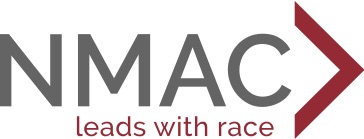 NMAC leads with race to end the HIV epidemic in America.
NMAC leads with race to end the HIV epidemic in America.
We do it by urgently fighting for health equity and racial justice via our continued commitment to build leaders of color, our focused role within the HIV community on race, and its impact on HIV care and prevention, and by our survival when so many other agencies have closed their doors. In 1987 we started with a commitment to building leaders of color with the skills, connections, and savvy to fight. Today, NMAC continues to build leaders and ask them to focus on race and its impacts on HIV care, treatment, and prevention. NMAC does not do anti-racism work. There are many organizations with more experience and qualifications. To be effective, anti-racism work has to focus on white people. NMAC builds the skills and tells the stories of people of color.


 In 2014-15, NMAC’s updated strategic plan changed our name, mission, and vision. During this time, America also saw the rise of the Occupy Wall Street, Black Lives Matter, and MeToo movements. Like these causes, NMAC fights for a world that is fair and equitable; however, our fight is focused/limited to ending the HIV epidemic in America. We are not here to end racism. We are here to examine how race impacts HIV care, treatment and prevention. The majority of Americans living with HIV are people of color, yet 74 percent of the people on PrEP are white. This inequity is why NMAC fights for comprehensive biomedical HIV prevention for all communities highly impacted by HIV.
In 2014-15, NMAC’s updated strategic plan changed our name, mission, and vision. During this time, America also saw the rise of the Occupy Wall Street, Black Lives Matter, and MeToo movements. Like these causes, NMAC fights for a world that is fair and equitable; however, our fight is focused/limited to ending the HIV epidemic in America. We are not here to end racism. We are here to examine how race impacts HIV care, treatment and prevention. The majority of Americans living with HIV are people of color, yet 74 percent of the people on PrEP are white. This inequity is why NMAC fights for comprehensive biomedical HIV prevention for all communities highly impacted by HIV.
To help in your deliberative process, here is how NMAC’s divisions lead with race. We have five programmatic divisions: Leadership Pipeline, Communications, Treatment, Capacity Building, and Conferences. In our work to lead with race, I thought it would be important for you to have all the information. CAPs is a real program that will make real requests of your time. Your input will influence the workshops, plenaries, and scholarship decisions for both USCA and the Summit. Here is more information on the program.
Leadership Pipeline
The Leadership Pipeline leads with race through its BLOC (Building Leaders of Color Living with HIV) initiative. This work builds the leadership skills of people of color living with HIV. These trainings focus on how race impacts living with the virus. The goal is to build strong leaders of color living with HIV who can take on expanded roles in our movement. NMAC works with these leaders to examine how racism, homophobia, sexism, transphobia, and HIV-phobia impacts their lives and their leadership. Partners include the Positive Women’s Network, Thrive SS, Transgender Law Center, and the US PLHIV Caucus.
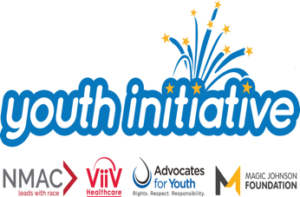 The Pipeline also has a multiyear Youth Initiative. While the program is not exclusively for youth of color, it works to insure the full participation of minority youth. Additionally, the program educates about race and its impact on HIV. The Youth Initiative is supported by ViiV Healthcare, Advocates for Youth, and the Magic Johnson Foundation. There are many ways to lead with race. Our work does not have to be race specific in order to accomplish our mission.
The Pipeline also has a multiyear Youth Initiative. While the program is not exclusively for youth of color, it works to insure the full participation of minority youth. Additionally, the program educates about race and its impact on HIV. The Youth Initiative is supported by ViiV Healthcare, Advocates for Youth, and the Magic Johnson Foundation. There are many ways to lead with race. Our work does not have to be race specific in order to accomplish our mission.
Communications
The communication department leads with race via its Community Spotlight webinars and e-newsletters. This new, focused effort tells the stores of NMAC’s African American, Asian/Pacific Islander, Latinx, and Native American constituents. Using their historic awareness months as a guide, NMAC has set February to focus on African Americans, May on Asian/Pacific Islanders, October on Latinx, and November on Native Americans.
NMAC’s Community Spotlight holds webinars and sends out e-newsletters that tells the stories of people of color leaders who might be forgotten or overlooked. NMAC commits to presenting the diversity of our movement with stories from women, gay men, the transgender community, people living with HIV, people on PrEP, and geographic regions that are highly impacted by HIV. Our goal is to inspire, educate, and memorialize the movement of people of color leaders fighting to end HIV. All of our stories deserve to be told.
In addition to the focus on communities of color, the Community Spotlight also sets aside March to talk about women, April for Youth, and June for the LGBT community. Storytelling plays an important role in minority communities, it’s how we share our history and pass down our values. NMAC’s Community Spotlight is a modern take on story telling: to educate, inspire, and memorialize the HIV history of people of color using technology.
Treatment
The Treatment division highlights the role that race plays in HIV treatment, care, and prevention. NMAC is very concerned that people of color are under represented on PrEP and over represented in new cases of HIV. This division connects, examines, and discusses linkages between race and HIV services via Strong Communities, PrEP Summit & programming, and our initiative for People over 50 living with HIV.
 Strong Communities is a deeper dive into six southern cities to document how race impacts access to HIV services. NMAC documents the barriers facing people of color living with HIV to get the HIV services they need. This fall, Treatment will produce a best practice guide for community organizations that examines racial equity in services for PLWH.
Strong Communities is a deeper dive into six southern cities to document how race impacts access to HIV services. NMAC documents the barriers facing people of color living with HIV to get the HIV services they need. This fall, Treatment will produce a best practice guide for community organizations that examines racial equity in services for PLWH.
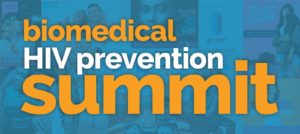 While the Biomedical HIV Prevention Summit is not specific to communities of color, NMAC ensures that the voices of our constituents are part of the larger biomedical HIV prevention discussion. We lead with race by highlighting the challenges that people of color face to access PrEP and by raising concerns about the low retention rates of people of color living with HIV in healthcare. This year we will expand the discussion to include Trauma Informed Care. NMAC believes the trauma of racism directly impacts people of color’s willingness to access PrEP or stay in healthcare and on meds. This April, NMAC will have a PrEP Learning Collaborative on access and retention on PrEP within communities of color. Information gathered and vetted at the Collaborative will be the foundation of a best practices manual on community implemented PrEP enrollment programs for people of color slated to be released at the Summit.
While the Biomedical HIV Prevention Summit is not specific to communities of color, NMAC ensures that the voices of our constituents are part of the larger biomedical HIV prevention discussion. We lead with race by highlighting the challenges that people of color face to access PrEP and by raising concerns about the low retention rates of people of color living with HIV in healthcare. This year we will expand the discussion to include Trauma Informed Care. NMAC believes the trauma of racism directly impacts people of color’s willingness to access PrEP or stay in healthcare and on meds. This April, NMAC will have a PrEP Learning Collaborative on access and retention on PrEP within communities of color. Information gathered and vetted at the Collaborative will be the foundation of a best practices manual on community implemented PrEP enrollment programs for people of color slated to be released at the Summit.
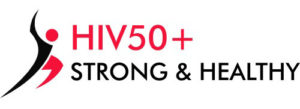 NMAC’s Over 50 Living with HIV is not minority specific, but NMAC insures the voices of people of color are well represented. Isolation and depression are unfortunately too common for too many. Some minority communities hold on to old fashioned beliefs about depression that leads to this disease being under diagnosed with years of needless pain because treatment was delayed. People of color make-up the majority of people over 50 living with HIV. Building this community’s leadership will create networks of leaders of color who will be asked to help inform NMAC’s programming and be real examples of how to overcome the challenges of getting older with HIV. Through NMAC’s limited mini grant program, they’ve already putting together retreats, social events, support groups, and other efforts to reach their peers. NMAC believes when these leaders heal their community they heal themselves.
NMAC’s Over 50 Living with HIV is not minority specific, but NMAC insures the voices of people of color are well represented. Isolation and depression are unfortunately too common for too many. Some minority communities hold on to old fashioned beliefs about depression that leads to this disease being under diagnosed with years of needless pain because treatment was delayed. People of color make-up the majority of people over 50 living with HIV. Building this community’s leadership will create networks of leaders of color who will be asked to help inform NMAC’s programming and be real examples of how to overcome the challenges of getting older with HIV. Through NMAC’s limited mini grant program, they’ve already putting together retreats, social events, support groups, and other efforts to reach their peers. NMAC believes when these leaders heal their community they heal themselves.


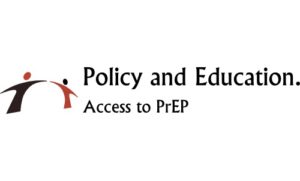 HIV Policy
HIV Policy
HIV policy work is housed in NMAC’s Treatment division. Most of NMAC’s efforts happen in partnership with AIDS United, NASTAD, NCSD, and The AIDS Institute. In this coalition, NMAC brings the voice of people of color to the table. Our primary focus is the federal domestic HIV portfolio. For NMAC, the partnership is about working collaboratively to address mutual concerns. After the 2016 election, the agency was very concerned about the future. In this political environment, we are stronger together.
NMAC also works closely with Federal AIDS Policy Partnership (FAPP). Established in 2002, FAPP is a national coalition of local, regional, and national organizations advocating for progressive federal HIV/AIDS legislation and policy. FAPP members are organizations that devote significant resources in support of federal HIV/AIDS public policy advocacy.
New this year is NMAC’s informal Congressional Briefings. In February we held one that spotlighted the African American community. In March it will be Native Americans. May will spotlight Asian/Pacific Islanders and October the Latinx community. NMAC leads with race by bringing the stories of our constituents to Congress. Each briefing features the diversity of leaders including people living with HIV, executive directors of minority AIDS organizations, women (cis & trans), and gay men.
 Capacity Building
Capacity Building
NMAC is a Centers for Disease Control capacity building provider for community-based organizations. We provide services to a variety of CBOs, most of whom are not minority, but have a large minority clientele and/or staff. Recently, Capacity Building started to do limited work on how race impacts the work place. This work focuses on non-minority mangers work with people of color staff.
This division also has a PrEP program that focuses on youth. In the near future, the agency will need to address how communities and services get shared and divided between programs. Right now, I’m following the “throw a thousand seeds and see what sprouts” theory. Rather than be concerned about overlap, I want to see what programs survive in this challenging funding environment. While NMAC does support new initiatives with its limited unrestricted funds, long term support is needed to make any effort viable
Conferences
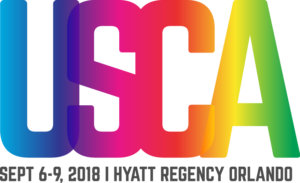 The United States Conference on AIDS is NMAC’s most visible program. While not specific for people of color, most attendees understand and expect NMAC to put race front and center when producing workshops and plenaries. These meetings are produced by people of color who lead with race. We are not an afterthought at USCA and the Summit.
The United States Conference on AIDS is NMAC’s most visible program. While not specific for people of color, most attendees understand and expect NMAC to put race front and center when producing workshops and plenaries. These meetings are produced by people of color who lead with race. We are not an afterthought at USCA and the Summit.
In 2018 USCA will bring back the Race Institutes that will be developed by our new Constituent Advisory Panels (CAPs). CAPs are also NMAC’s newest programming to lead with race. By reading abstracts, reviewing plenary concepts, and making scholarship decisions, NMAC extends its commitment to building leaders while also learning from these individuals.
There are many ways to lead with race. NMAC believes that building the skills of leaders of color, standing up within the HIV movement, and surviving the difficult years is how NMAC leads with race to end the HIV epidemic in America. Will you join our grand experiment? Online applications are due March 23 to be on NMAC’s new Community Advisory Panels (CAP). Hopefully, this long message will help you better understand our vision and mission to end HIV in America.
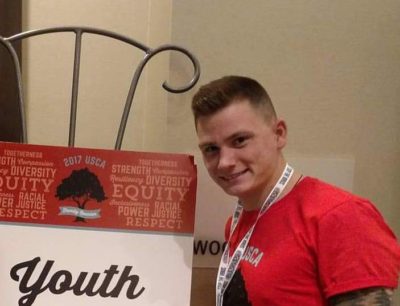


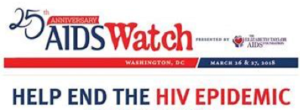
 Whether you’re interested in convening a workshop or presenting a poster, your abstract must be submitted no later than
Whether you’re interested in convening a workshop or presenting a poster, your abstract must be submitted no later than 



 We do it by urgently fighting for health equity and racial justice via our continued commitment to build leaders of color, our focused role within the HIV community on race, and its impact on HIV care and prevention, and by our survival when so many other agencies have closed their doors. In 1987 we started with a commitment to building leaders of color with the skills, connections, and savvy to fight. Today, NMAC continues to build leaders and ask them to focus on race and its impacts on HIV care, treatment, and prevention. NMAC does not do anti-racism work. There are many organizations with more experience and qualifications. To be effective, anti-racism work has to focus on white people. NMAC builds the skills and tells the stories of people of color.
We do it by urgently fighting for health equity and racial justice via our continued commitment to build leaders of color, our focused role within the HIV community on race, and its impact on HIV care and prevention, and by our survival when so many other agencies have closed their doors. In 1987 we started with a commitment to building leaders of color with the skills, connections, and savvy to fight. Today, NMAC continues to build leaders and ask them to focus on race and its impacts on HIV care, treatment, and prevention. NMAC does not do anti-racism work. There are many organizations with more experience and qualifications. To be effective, anti-racism work has to focus on white people. NMAC builds the skills and tells the stories of people of color.

















 Register now for the latest webinar in our Community Spotlight Series on March 21 at 3:00 PM EST. Gina Brown, Community Organizer for the Southern AIDS Coalition, will join us to talk about Women and HIV in the South.
Register now for the latest webinar in our Community Spotlight Series on March 21 at 3:00 PM EST. Gina Brown, Community Organizer for the Southern AIDS Coalition, will join us to talk about Women and HIV in the South.